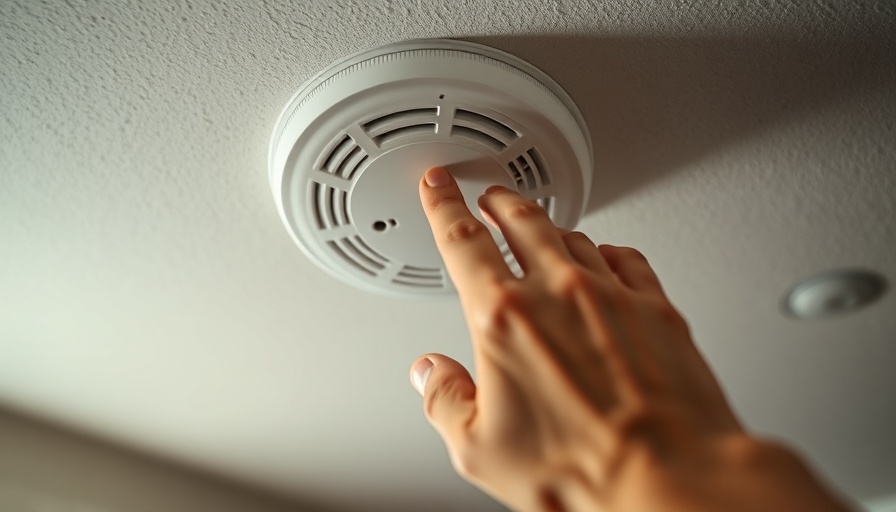
Decoding the Mystery: Why Is My Smoke Alarm Going Off?
If you’ve ever battled with your smoke alarm, that relentless beeping can feel like a clash of wills. You rush to the kitchen, the bathroom, and even check the fireplace—all in the hope of finding a fire that isn’t there. It turns out, there are several reasons why smoke detectors might chime when there’s no fire in sight, and understanding them can save you from unnecessary panic (and embarrassment).
Common Causes of Smoke Alarm False Alarms
First, let’s tackle the chaos created by misplaced alarms. Often, smoke detectors are located nearer to high humidity zones like bathrooms or cooking areas. This can cause them to trigger false alarms. Kevin Feak, a licensed fire protection engineer, points out that smoke alarms near areas with steam or high humidity are more likely to malfunction. For example, if your detector is just outside the bathroom, it may interpret a hot shower’s steam as smoke. For best results, consider relocating your smoke detector away from these steam-producing areas.
Are You Cooking Too Close to Your Alarm?
Are you guilty of creating gourmet charred dishes? Smoke from cooking, particularly burnt food, can set off your smoke detector as well. Even if it is installed at a safe distance from the kitchen, it may still be overly sensitive. Regularly check your cooking habits and consider strategic placement to maintain the peace between your culinary indulgence and alarm.
What Lies Within: Dust and Bugs
Here’s a wild thought: your smoke detector is essentially an insect hotel! Small bugs can accidentally crawl inside the chamber, disrupting its sensors and causing an unwarranted alarm. Similarly, dust accumulation creates an obstruction that might mimic smoke particles, leading to false alarms. To combat this, it’s vital to keep your detectors clean. Every few months, simply vacuum around the detector’s openings to prevent pests and debris from settling in.
The Role of Humidity in Your Home
Another point to consider is the humidity levels in your home. High humidity can confuse a smoke alarm as the moisture mimics smoke particles. If you live in wetter climates, it’s beneficial to keep the air circulating by using fans or opening windows to prevent humidity from building up. In fact, studies show that humidity can be as deceptive as overcooked toast!
Ensuring Your Alarm is in Top Shape
But if you’ve checked all these elements and your smoke alarm still goes off, it may be time to invest in a new one. Smoke alarms aren’t meant to last forever; typically, their lifecycle is around ten years. Staying proactive about replacing old devices can prevent false alarms and ensure your family’s safety is prioritized. How long has it been since you replaced your smoke detector?
Final Thoughts: Peace of Mind Matters
No one enjoys hearing their smoke alarm go off unexpectedly. By understanding the possible culprits like placement, cooking habits, humidity, and maintenance, you can minimize false alarms while keeping safety a priority in your home. The next time your alarm goes off, remember it’s just looking out for you!
Interested in improving your home’s fire safety? Keep these tips in mind and consider upgrading to smart smoke detectors that help minimize false alarms. Your family’s safety is too important to gamble with!
 Add Row
Add Row  Add
Add 




 Add Row
Add Row  Add
Add 

Write A Comment